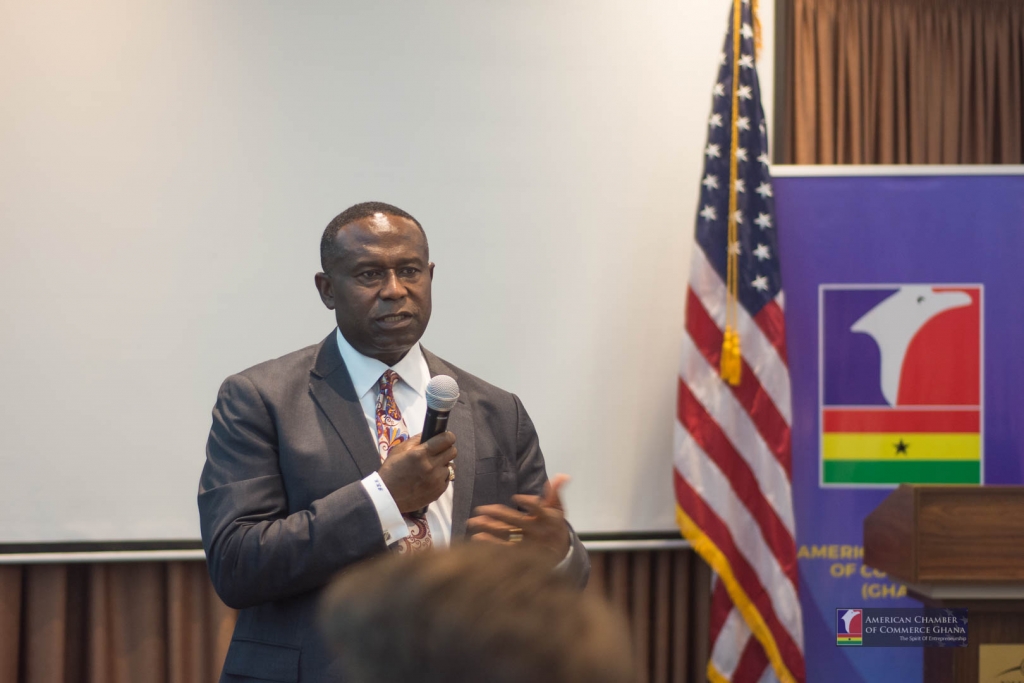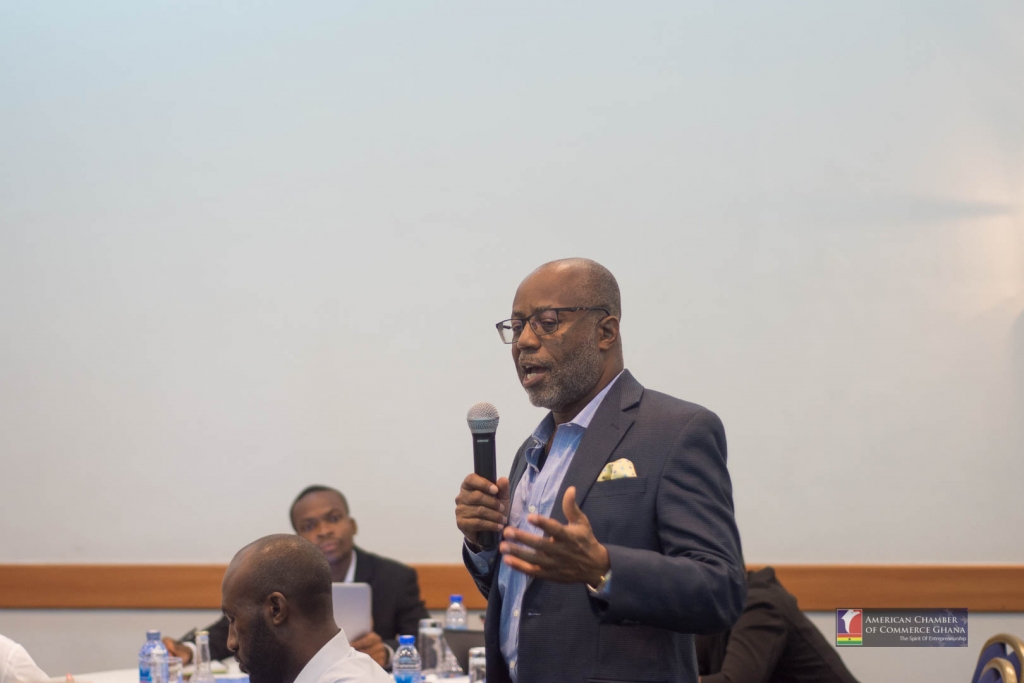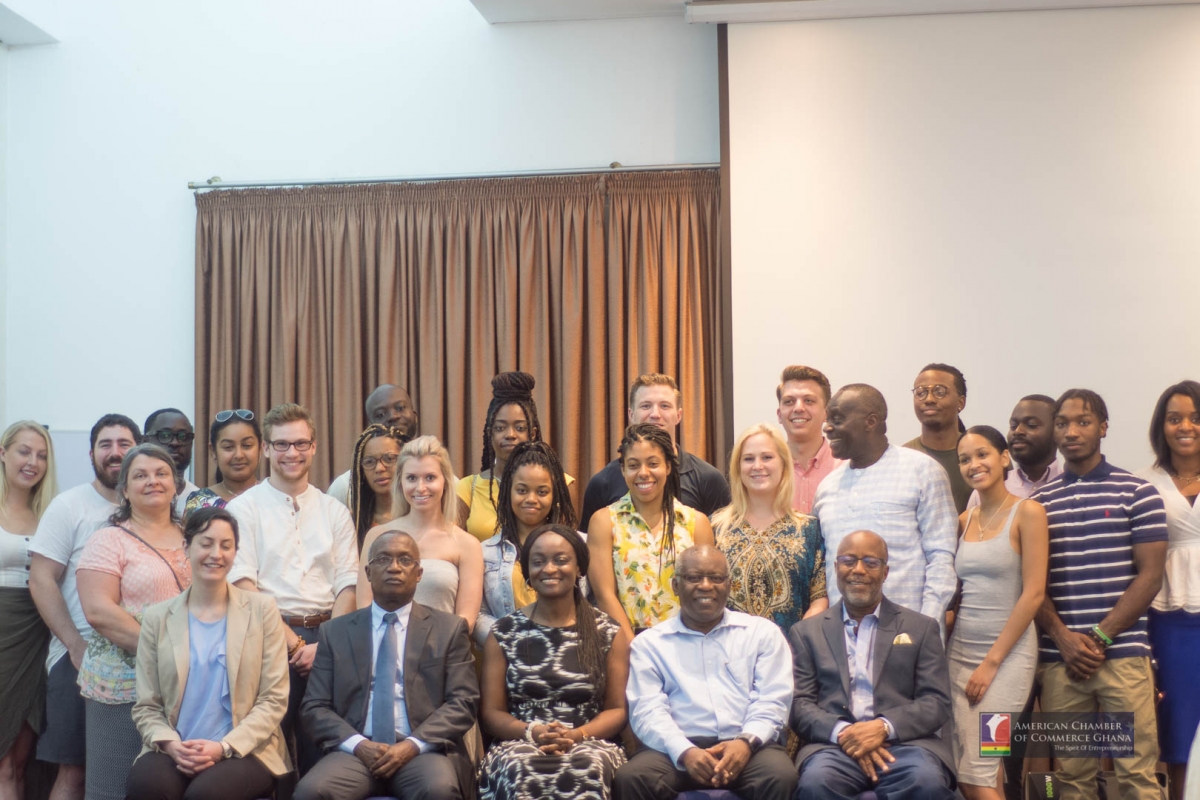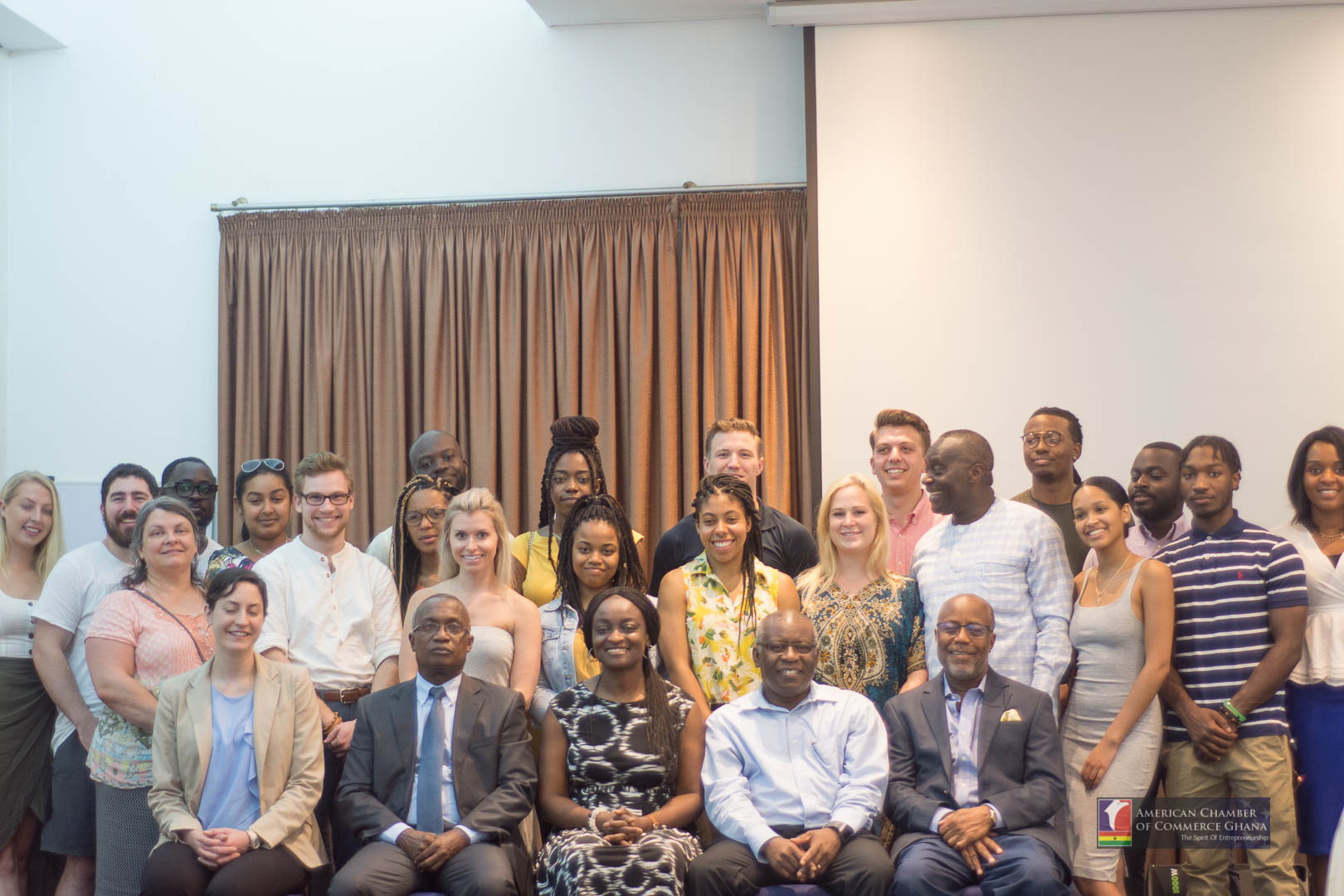The American Chamber of Commerce, Ghana hosted some students from the State University of New York at Buffalo (UB) on Monday, 14th January 2019 as part of the University’s Social Innovation and Entrepreneurial Leadership Program. During the meeting, the students from UB had the privilege of interacting with AmCham Ghana President, Joe Mensah, some business executives from AmCham member companies and senior officials of the Ghana Investment Promotion Centre on the business environment in Ghana.
The students comprised medical and non-medical students, shared their experiences concerning their trip to various parts of the country focusing on their activities in health, economic development, business and sanitation among others.

Addressing the students at the beginning of the meeting, Mr. Joe Mensah noted that Ghana’s peaceful political atmosphere makes it a very attractive destination in West Africa for investors all over the world. He also noted that the common language (English) and similarity of laws of Ghana and many western countries makes Ghana even more attractive to investors.
According to him, the Government of Ghana, through its Ghana Beyond Aid Agenda, seeks to make the country self-sufficient. He however lamented the decline in the contribution of the agricultural sector to GDP in the country over the years but was optimistic of the progress being made in the sector in recent years. He commended the educational system of Ghana as being highly competitive and producing a highly skilled workforce and reiterated that Ghana is a good place to do business.
 Representatives of the students from both the medical and non-medical fields gave an overview of the various activities they had undertaken in the country which included: running health clinics, visiting a number of businesses and market centers and tourist attractions. According to them, the experience which they described as invigorating also gave them an understanding of emerging trends in the Ghanaian economy.
Representatives of the students from both the medical and non-medical fields gave an overview of the various activities they had undertaken in the country which included: running health clinics, visiting a number of businesses and market centers and tourist attractions. According to them, the experience which they described as invigorating also gave them an understanding of emerging trends in the Ghanaian economy.
An important issue that was raised by the students during the meeting was how to manage business and ethics in Ghana. Some members of the Chamber present at the event noted that whiles corruption and leadership has been the bane of Africa and Ghana for that matter, businesses needed to stick with their principles, resist the urge to give in to corrupt practices and clearly define their brand to represent what they stand for. They added that, although it is not easy to fight corruption in the business environment in the country, some of them have persevered over the years.
The students also highlighted accessibility to healthcare, low level of education especially among women, infrastructure, protocols involved in transactions, corruption, lack of funding, limited number of doctors in rural areas, brain drain, and waste management as some of the challenges they observed in the country. The executives of AmCham encouraged the students to contribute to finding solutions to the challenges identified.

Chamber executives also noted that the presence of mentors to orient investors on the business and cultural environment in Ghana provides an opportunity for students and Ghanaian expatriates to do business in Ghana. They challenged the students to identify opportunities in the gaps they have identified in the country and propose suitable solutions to help bridge them.
























































